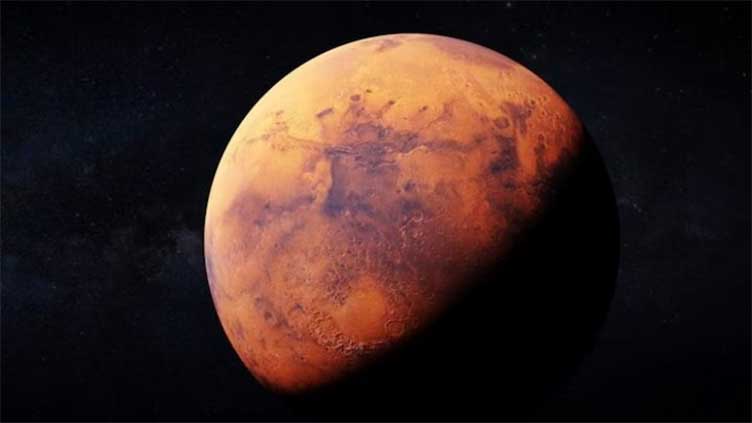Mars secretly makes Earth's oceans dance to its tunes

Technology
New findings reveal how Mars has had a deep impact on Earth's oceans
(Web Desk) - Researchers analysed more than half a century of scientific drilling data from hundreds of sites worldwide to understand the vigour of deep-sea currents through time.
Mars, the next-door cosmic neighbour to Earth, is the next target for the human species to raise a colony, and as this effort pans out, more and more intriguing information is pouring out.
New findings reveal how Mars has had a deep impact on Earth's oceans for millennia without us knowing about it. Mars causes the churning of Earth's ocean every 2.4 million years, which is linked to periods of increased solar energy and a warmer climate.
No, the current bout of climate change being experienced by Earth is not due to Mars. It's all human-induced, the scientists have categorically said.
In a study published in the journal Nature Communications, researchers looked at how geological-timescale climate change affects ocean circulation and how this could help scientists model future climate outcomes.
They were trying to understand if ocean-bottom currents become more vigorous or more sluggish in a warmer climate.
Researchers analysed more than half a century of scientific drilling data from hundreds of sites worldwide to understand the vigour of deep-sea currents through time.
What they found was the vigour of these deep-sea currents shifts every 2.4 million years and they term this cycle as the "astronomical grand cycles." This occurs due to the interaction between the orbits of Earth and Mars.
We were surprised to find these 2.4-million-year cycles in our deep-sea sedimentary data. There is only one way to explain them: they are linked to cycles in the interactions of Mars and Earth orbiting the Sun,” Dr Adriana Dutkiewicz from the University of Sydney explained.
The gravity of the two planets messes with each other, creating a dance called resonance.
This dance affects the shape of their orbits, called eccentricity, or how circular they are. For Earth, this means cycles of about 2.4 million years with periods of more sunlight and warmer weather.
The scientists found that during warmer times, the deep-sea record shows more breaks, connected to stronger deep ocean currents.
The study also points out that deep whirlpools, known as eddies, played a big role in warming seas in the past. These eddies might help prevent ocean stagnation some thought could happen if a crucial ocean current (AMOC) slows down.
However, they don't move water like the AMOC, which shifts water between different latitudes. These eddies are more like giant whirlpools that reach the deep ocean floor, causing erosion and building up sediment, like underwater snowdrifts.


